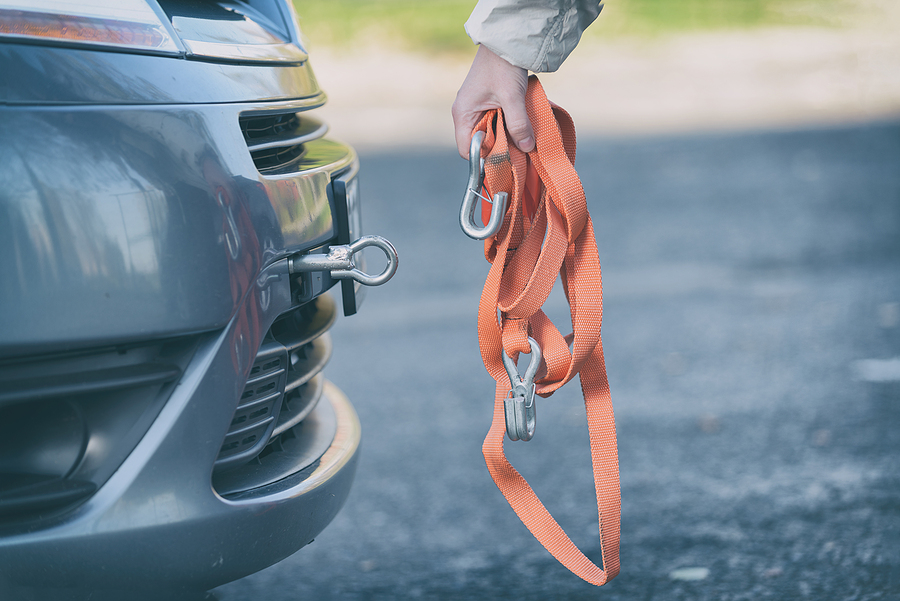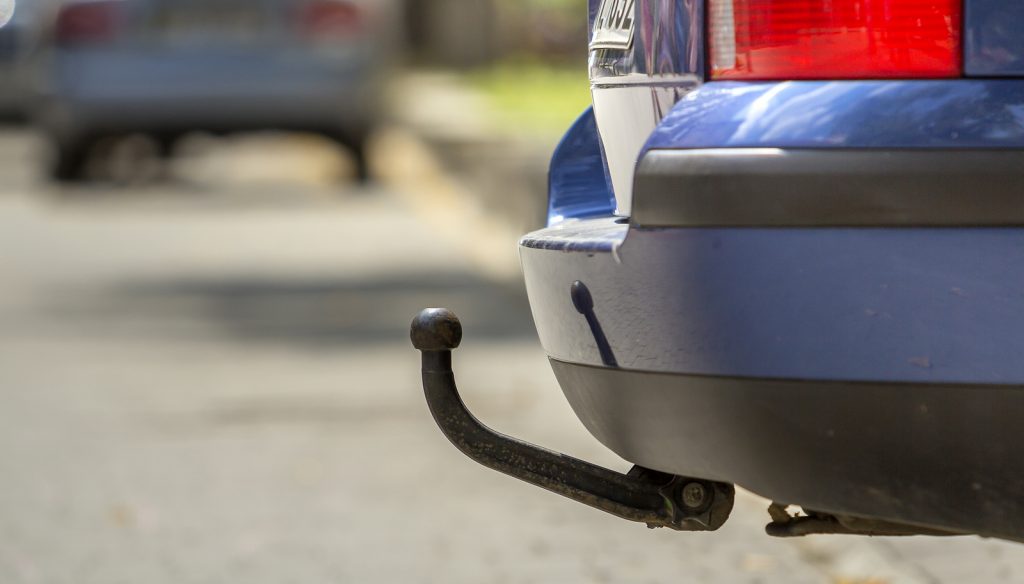There are many reasons why you might have to tow another vehicle with your own vehicle. Whether taking a cross-country road trip with your RV and primary vehicle in tow, moving to another state for work, or helping a friend transport their broken-down vehicle to their auto repair shop, the most important factor is safety. There are certain protocols that you, as the driver of the vehicle towing the other vehicle, must take in order to protect both people and cargo on the road.
Continue reading to learn some vital driving safety tips for towing another vehicle with your own.

Safety Tips for the Driver of the Towing Vehicle
✅ Use Extreme Caution
Always drive with superior care and caution. Never exceed 16 miles per hour on the road, and be sure to stay alert of all surroundings, both in front of you, beside you, and behind you. Driving too fast with another vehicle in tow can create too much inertia, or force, that can easily turn into uncontrollable momentum. As a result, your vehicle might have trouble coming to a stop on demand.
✅ Utilize the Clutch Properly
When pulling away for the first time with the other vehicle in tow behind you, it is vital that you operate your clutch properly. Being gentle with the clutch, pull out delicately, and at a very slow pace. If you are not using a vehicle with a manual clutch, just be sure to pull out slowly and carefully. If you pull out abruptly, you can snap the towrope or towing pole that connects your car to the towed one. As a result, the towed vehicle can whip forward and smash into the back of yours, or worse, come off on the road and smash into another person or vehicle.
✅ Be Slow and Gentle When Braking
Never slam on the brakes, or brake suddenly, when towing another vehicle with your own. This can cause the same type of problems with pulling out too fast, as mentioned above, but it can also cause massive damage to both vehicles. Give yourself several hundred feet to brake slowly, before coming to a stop, turning, or yielding. Apply the brakes gradually and gently to avoid sudden braking. Likewise, use your turn signals far ahead of time to warn drivers around you.
If the Driver is Sitting in the Car Being Towed…
In the case that you are utilizing a towing method that allows the driver to sit inside their own car while your car tows it, there are certain precautions they must take as well. They should remain fully alert, watching all braking and turn signaling. This allows them to actively steer and brake in coordination with the other vehicle, as needed. Also, they should keep constant tension in the towrope or towing pole to reduce jerking and similar abrupt movements.
Indianapolis Indiana Towing and Recovery Services You Can Trust
Call Zore’s Towing at 317-247-8484 for 24 hour towing and recovery services, or roadside assistance in Indianapolis and throughout Central Indiana. Our friendly staff is waiting by the phones, ready to help you get back on the road, safe and sound. We operate 24 hours a day, 7 days a week, and 365 days a year, so you can always count on us. Request a free estimate, today.



